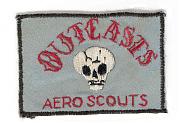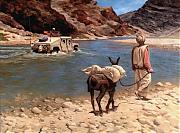The communist in South Vietnam were the driving force behind the Tet offensive. However, the overall communist commander in the south was killed in a US bombing raid on the communist headquarters. Giap was brought in to take over command of the operation that he personally opposed.
Revolutionary warfare theory called for a general uprising when enemy forces had been weakened to the point that the communist could take over. The southern commanders stood this theory on its head, because they pushed for the "general uprising" because their own forces were getting weaker.
There has been a tendency to attribute more wisdom to the communist leaders than they deserved for the Tet offensive. Some of this has been by the media that really blew its coverage of the communist military disaster. Giap's judgment on the military situation was correct and the political impact in Washington was a windfall that neither he or the other communist leaders ever anticipated.








Bookmarks